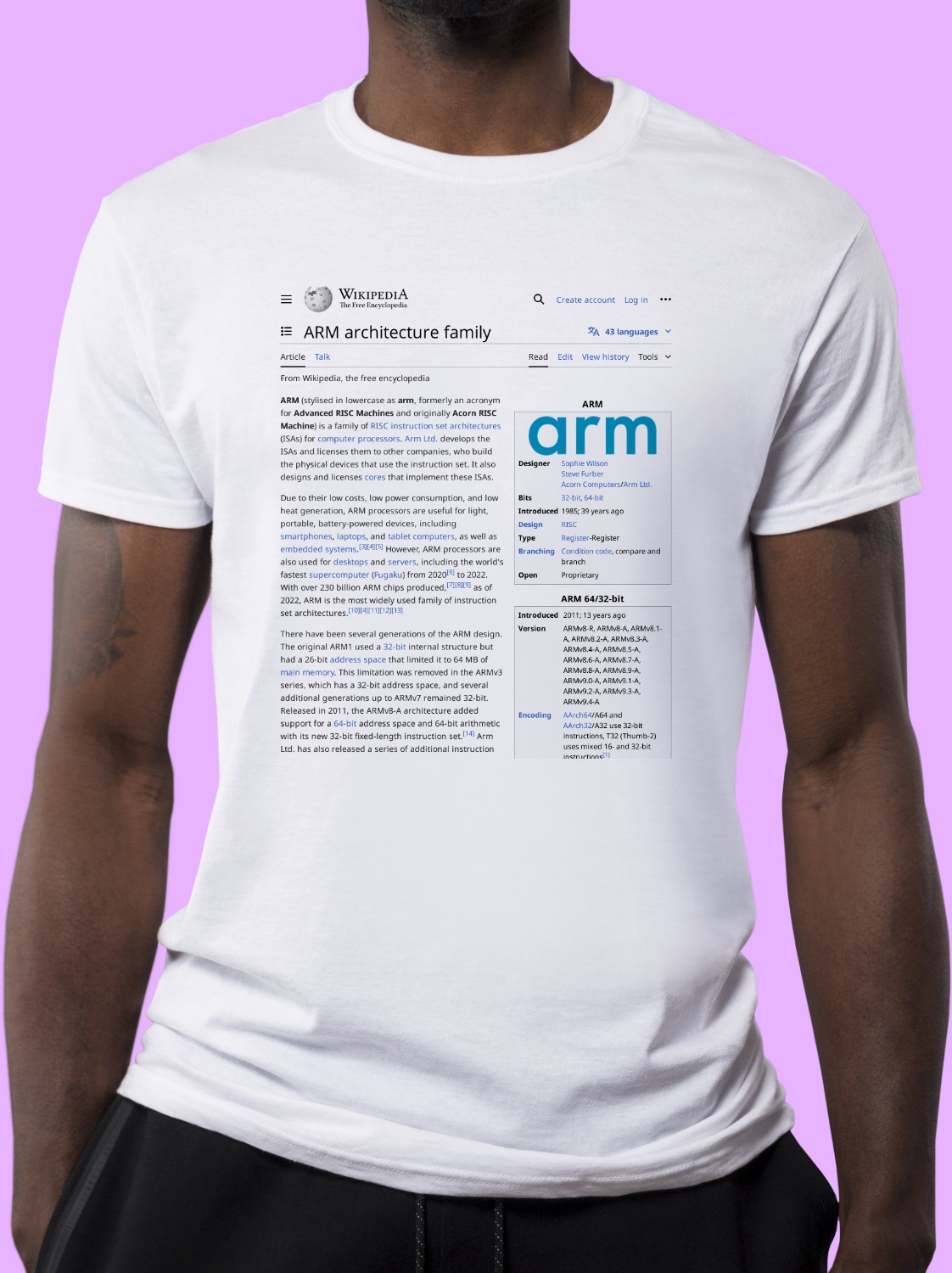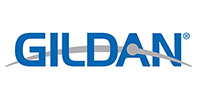
ARM architecture Shirt
A classic cotton tee emblazoned with the Wikipedia article on ARM architecture ↗.
cotton tee emblazoned with the Wikipedia article on ARM architecture ↗.- Preshrunk jersey knit
- Seamless double-needle 2.2 cm collar
- Taped neck and shoulders
- Tear away label
- Double-needle sleeve and bottom hems
- Quarter-turned to eliminate centre crease
ARM (stylised in lowercase as arm) is a family of RISC instruction set architectures for computer processors. Arm Holdings develops the instruction set architecture and licenses them to other companies, who build the physical devices that use the instruction set. It also designs and licenses cores that implement these instruction set architectures.
Due to their low costs, low power consumption, and low heat generation, ARM processors are useful for light, portable, battery-powered devices, including smartphones, laptops, and tablet computers, as well as embedded systems. However, ARM processors are also used for desktops and servers, including Fugaku, the world's fastest supercomputer from 2020 to 2022. With over 230 billion ARM chips produced, since at least 2003, and with its dominance increasing every year, ARM is the most widely used family of instruction set architectures.
There have been several generations of the ARM design. The original ARM1 used a 32-bit internal structure but had a 26-bit address space that limited it to 64 MB of main memory. This limitation was removed in the ARMv3 series, which has a 32-bit address space, and several additional generations up to ARMv7 remained 32-bit. Released in 2011, the ARMv8-A architecture added support for a 64-bit address space and 64-bit arithmetic with its new 32-bit fixed-length instruction set. Arm Holdings has also released a series of additional instruction sets for different roles: the "Thumb" extensions add both 32- and 16-bit instructions for improved code density, while Jazelle added instructions for directly handling Java bytecode. More recent changes include the addition of simultaneous multithreading (SMT) for improved performance or fault tolerance.
About Wikishirt
Wikishirt is a retail experiment that lets you buy a shirt with any Wikipedia Article printed on it. There are over 5 million Wikipedia articles, so we have over 5 million shirts.Check out our homepage for random featured shirts and more!